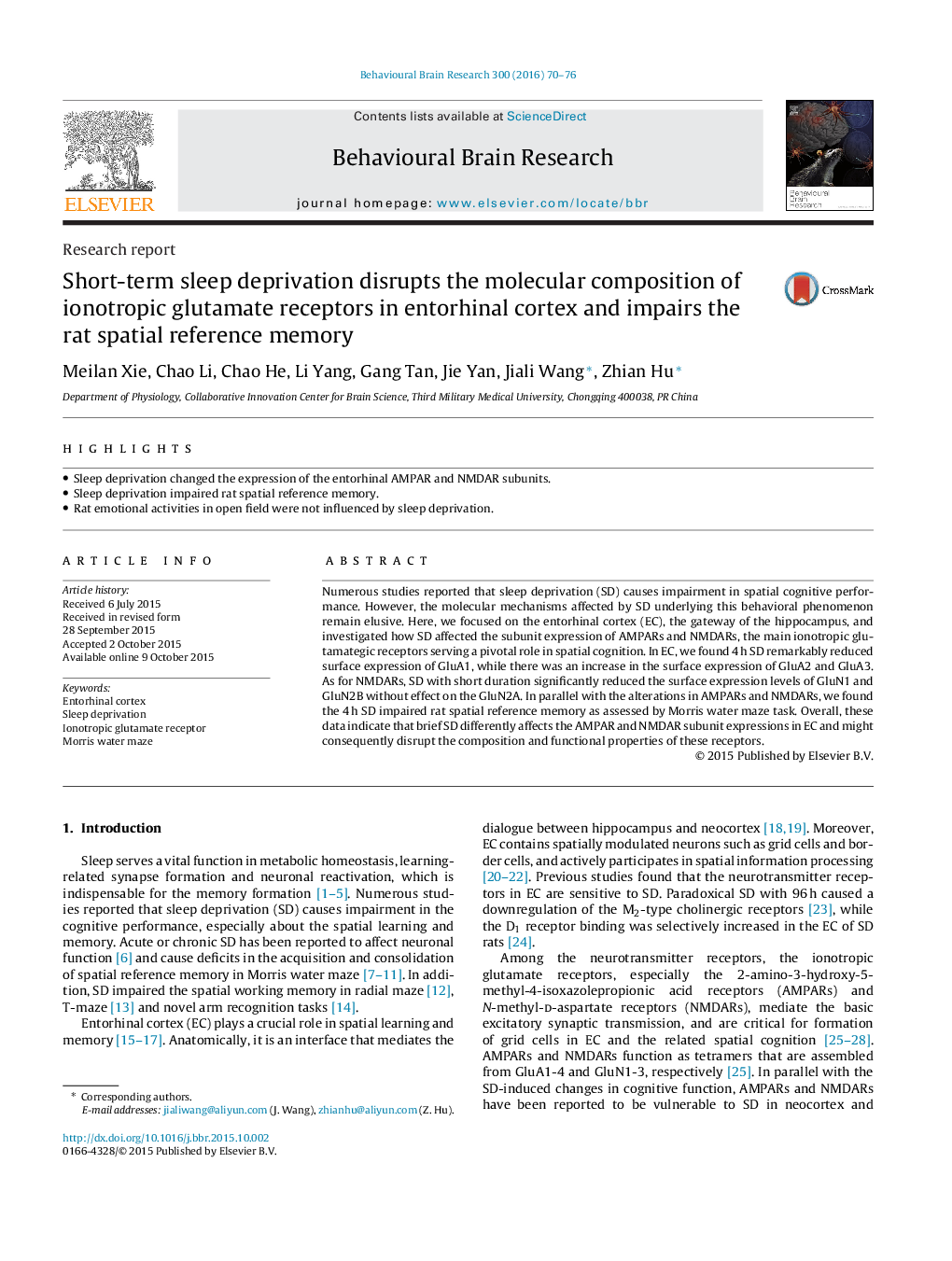| Article ID | Journal | Published Year | Pages | File Type |
|---|---|---|---|---|
| 4312201 | Behavioural Brain Research | 2016 | 7 Pages |
•Sleep deprivation changed the expression of the entorhinal AMPAR and NMDAR subunits.•Sleep deprivation impaired rat spatial reference memory.•Rat emotional activities in open field were not influenced by sleep deprivation.
Numerous studies reported that sleep deprivation (SD) causes impairment in spatial cognitive performance. However, the molecular mechanisms affected by SD underlying this behavioral phenomenon remain elusive. Here, we focused on the entorhinal cortex (EC), the gateway of the hippocampus, and investigated how SD affected the subunit expression of AMPARs and NMDARs, the main ionotropic glutamategic receptors serving a pivotal role in spatial cognition. In EC, we found 4 h SD remarkably reduced surface expression of GluA1, while there was an increase in the surface expression of GluA2 and GluA3. As for NMDARs, SD with short duration significantly reduced the surface expression levels of GluN1 and GluN2B without effect on the GluN2A. In parallel with the alterations in AMPARs and NMDARs, we found the 4 h SD impaired rat spatial reference memory as assessed by Morris water maze task. Overall, these data indicate that brief SD differently affects the AMPAR and NMDAR subunit expressions in EC and might consequently disrupt the composition and functional properties of these receptors.
